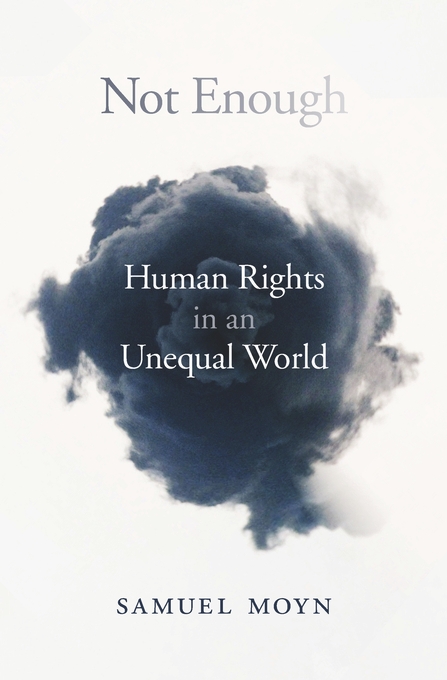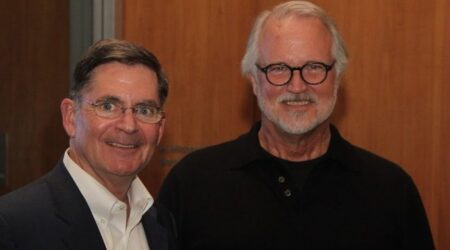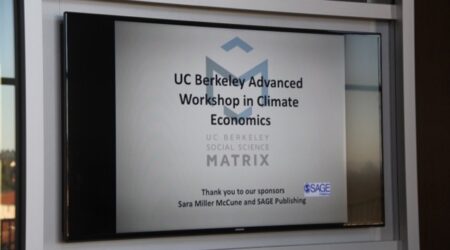 On March 15, 2018, Social Science Matrix was honored to host Samuel Moyn, Professor of Law and History at Yale University, for a lecture entitled “Human Rights in the Neoliberal Maelstrom.” Drawing from his recently published book Not Enough: Human Rights in an Unequal World, Professor Moyn took on the debate about how to conceptualize the relationship between human rights and neoliberal globalization. Marianne Constable, Professor of Rhetoric at UC Berkeley, served as discussant and provided a response to Professor Moyn’s lecture.
On March 15, 2018, Social Science Matrix was honored to host Samuel Moyn, Professor of Law and History at Yale University, for a lecture entitled “Human Rights in the Neoliberal Maelstrom.” Drawing from his recently published book Not Enough: Human Rights in an Unequal World, Professor Moyn took on the debate about how to conceptualize the relationship between human rights and neoliberal globalization. Marianne Constable, Professor of Rhetoric at UC Berkeley, served as discussant and provided a response to Professor Moyn’s lecture.
The timing of the two phenomena — one in ethics and one in economics — has coincided, both rising since a 1970s breakthrough. But debate rages about whether to see human rights as the best tools to oppose their neoliberal Doppelgänger or to regard the new law and movements around rights — including economic and social rights — as part of the problem. In his talk, Professor Moyn rejected both extreme positions in order to seek a different alternative. Of course human rights are a product of their time, but this hardly means they are easy to dismiss. However, as a set of ethical propositions and a set of practices, human rights are not what we need to confront economic injustice.
Samuel Moyn has written several books in his fields of European intellectual history and human rights history, including The Last Utopia: Human Rights in History (2010), and edited or coedited a number of others. His most recent book, based on Mellon Distinguished Lectures at the University of Pennsylvania in fall 2014, is Christian Human Rights (2015). A final book of human rights history, Not Enough: Human Rights in an Unequal World, is forthcoming from Harvard University Press in April 2018. Over the years he has written in venues such as Boston Review, the Chronicle of Higher Education, Dissent, The Nation, The New Republic, the New York Times, and the Wall Street Journal.
This event was co-sponsored by the Human Rights Program and the Townsend Working Group on Law and Contemporary Theory. It was presented as part of the Department of Rhetoric Spring Colloqium, and as part of the Matrix Solidarity Series, which seeks to explore—and critique—the ethical foundations, concrete implementations, and prospective designs that have fostered or may foster connectedness, inclusiveness, and tolerance in a fragmented, exclusionary, and uncharitable world. These conversations, we hope, will be both an argument on behalf of the premises and practices of solidarity, and an exposition of the potential of the social sciences to contribute to it.


